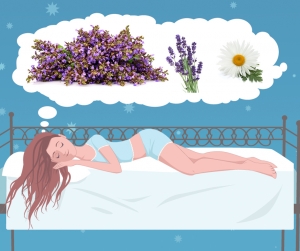and other natural options a New Year’s resolution in itself.
It seems that every day there’s another story in the media detailing the use of nasty chemicals in toiletries and cleaning products. Long lists of ingredients often include surprisingly dangerous chemicals.
The fact that this keeps happening would seem to indicate that we can’t always rely on the authorities to make safe, informed decisions. So, it’s down to us as individuals to ensure we’re doing the best we can for ourselves and our families.
A good way to do this is to use simple, natural alternatives containing just one or two ingredients. If we’re lucky enough to have the time (and inclination!), we may try and create our own products at home, so we know what we’re putting on our skin or what ingredients we are exposing ourselves to (you’ll be surprised how simple it can be!).
Our skin is the largest organ in the body, plus it’s the barrier between the outside environment and our bodies. So, it makes absolute sense to be fully aware of what we are putting on it.
Making changes to a long standing routine, whether this be a cleaning regime, skincare or using conventional medicines to treat mild conditions such as sleep deprivation, digestive problems or stress and anxiety can be a little daunting. There are so many different essential oils and each one has its own particular properties and abilities.
It can also be a little confusing to work out how to essential oils can be used safely and effectively for your own particular requirements.
However, with more and more information and advice freely available all over the internet and more Aromatherapists gaining recognised qualifications all the time, Aromatherapy doesn’t have to be time consuming or complex as perhaps it once was.
It’s just a matter of finding the best ways for you as an individual or your family members to benefit from it. So, this week we want to cover a few simple ways in which you can incorporate essential oils into your everyday life.
We want to show you how easy, effective and enjoyable it can be in the hope that this may encourage you to make a start in living a new, naturally inspired life. We start with some great tips on getting to sleep at night.
Swapping Conventional Sleeping Pills for Essential Oils
If like so many people you often have trouble drifting off to sleep at night (it only seems to be at two o clock in the morning that your mind starts to wonder and you suddenly remember the long list of jobs you’ve forgotten to do or the intense annoyance of getting a song stuck in your head which repeats over and over!), then you may find some simple Aromatherapy to be of great help.
Whatever the reasons, not getting enough sleep is never fun.
There may be times when we find ourselves reaching for conventional sleeping pills to help us nod off. The problem is that these conventional methods can have side effects that leave us feeling groggy, dehydrated and often make it difficult to get up in the morning.
What’s more, it is not uncommon to become reliant upon sleeping pills which can make it more difficult to get to sleep on those occasions when the pills aren't to hand.
Often we struggle to sleep when things are on our mind or if we haven’t given ourselves the chance to relax and wind down before going to bed. Although Aromatherapy is by no means a cure for insomnia, (particularly severe cases for which professional help should always be sought), it can certainly offer gentle treatments which can help you to maintain a natural sleeping pattern that’s right for you.
There are various ways in which Aromatherapy and essential oils can assist us with this and play a valuable role in helping us to relax, unwind and get a good night’s sleep. Many different oils can help (we’re sure you’ll find the right one for you).
Incorporating essential oils into your bed time routine is an enjoyable way of giving yourself some ‘me’ time and it doesn’t even have to be that complex or take up much time. It could involve:
Adding a few drops to a warm bath (this also gives you an excuse to wind down and relax before bed).
Diffusing through an electric fragrancer or oil burner (electric fragrancers are safe to leave on all night so you can feel the benefits for longer).
Adding a few drops to a carrier oil or lotion and massaging over the skin.
Adding a few drops to a cotton ball and putting it under your pillow at night.
Simply inhaling directly from the bottle (keep your desired oil(s) by your bedside so it is in reach when you need it (this is fine for most oils but you should always check with your supplier first as some of the more potent oils can cause damage to the sensitive lining of the nasal passage).
Whichever method you feel is most suited to your routine (or you may wish to combine several), we're sure that you can find an oil or two which can really benefit you. Here are some suggestions:
Clary Sage – this oil acts as a natural anti-depressant, helping promote feelings of mental strength and positivity. Steering away worries and negative thoughts is a great way to help switch off your mind and settle. It is also a gentle sedative, often used to treat stress and anxiety (often the key culprits of sleep deprivation).
Ylang Ylang – well-loved for its calming effects. Its rich, floral aroma is beautiful but it may not be pleasing to everyone (including me!) For those of you who do enjoy its scent, Ylang Ylang can offer valuable help to those who suffer from mild insomnia. It is thought to be effective in slowing down our breathing and heart rate, helping us to feel calm and settled.
Chamomile Roman – having a cup of Chamomile tea is a renowned natural sleep aid. But did you know the essential oil form is also extremely effective? Roman Chamomile is a gentle oil, so it’s generally safe to use with children and adults alike – a useful, calming oil to help the children settle down to sleep.
Vetivert – well known for its use as a natural sedative. Vetivert is said to be helpful in treating bouts of restlessness, anxiety and stresses which may be keeping us awake at night. An emotionally calming and grounding oil which is often a popular choice for practicing meditation and other forms of relaxation.
Lavender – and of course, we had to give this one a mention. Loved and used by many, lavender’s popular scent is a well-recognized treatment for insomnia. This may be due to its ability to calm nerves, stabilize our mood and balance our emotions. Careful though – too much Lavender can act as a stimulant and keep you awake! Less is more J
Thank you for reading! We’ll have another blog for you tomorrow on how you can easily incorporate Aromatherapy and essential oils into your life.
Don’t forget to check out our other blogs – there are currently over 50 to choose from with many different subjects covered. Click here to see all the blogs or use the search box at the top of the page to find articles relating to whatever you’re interested in.




